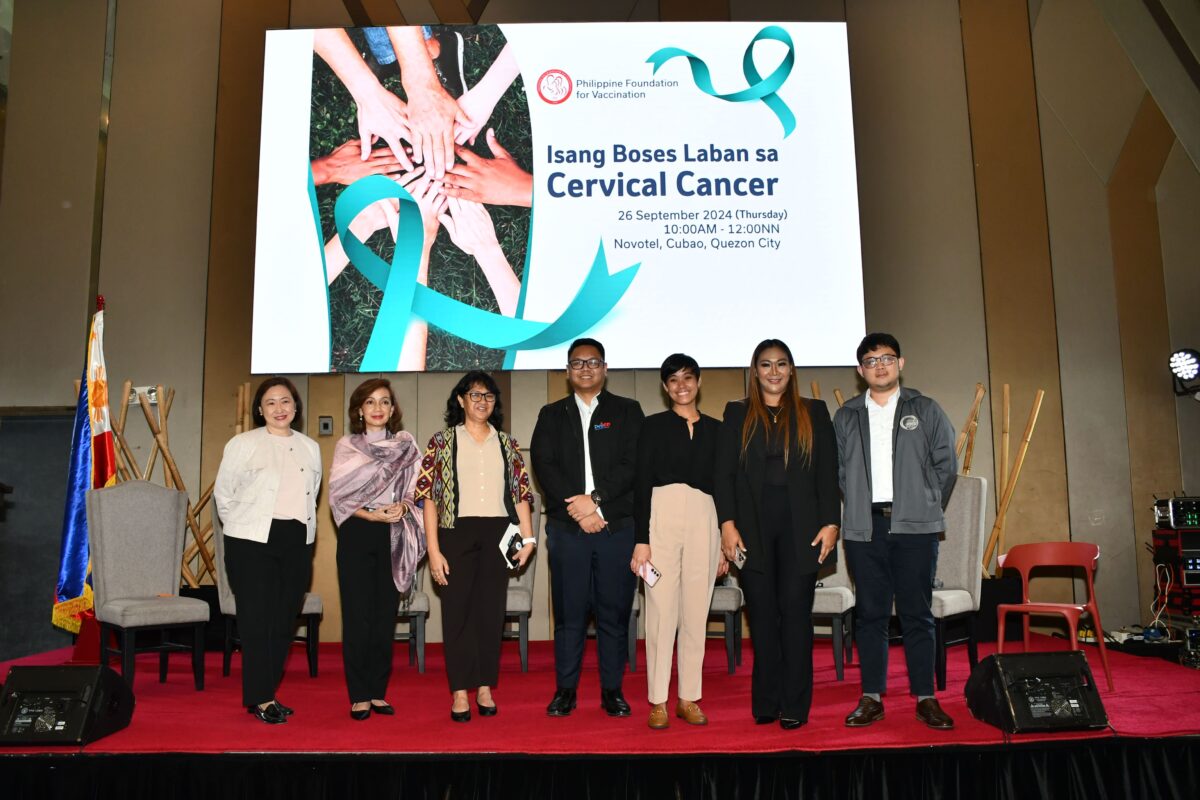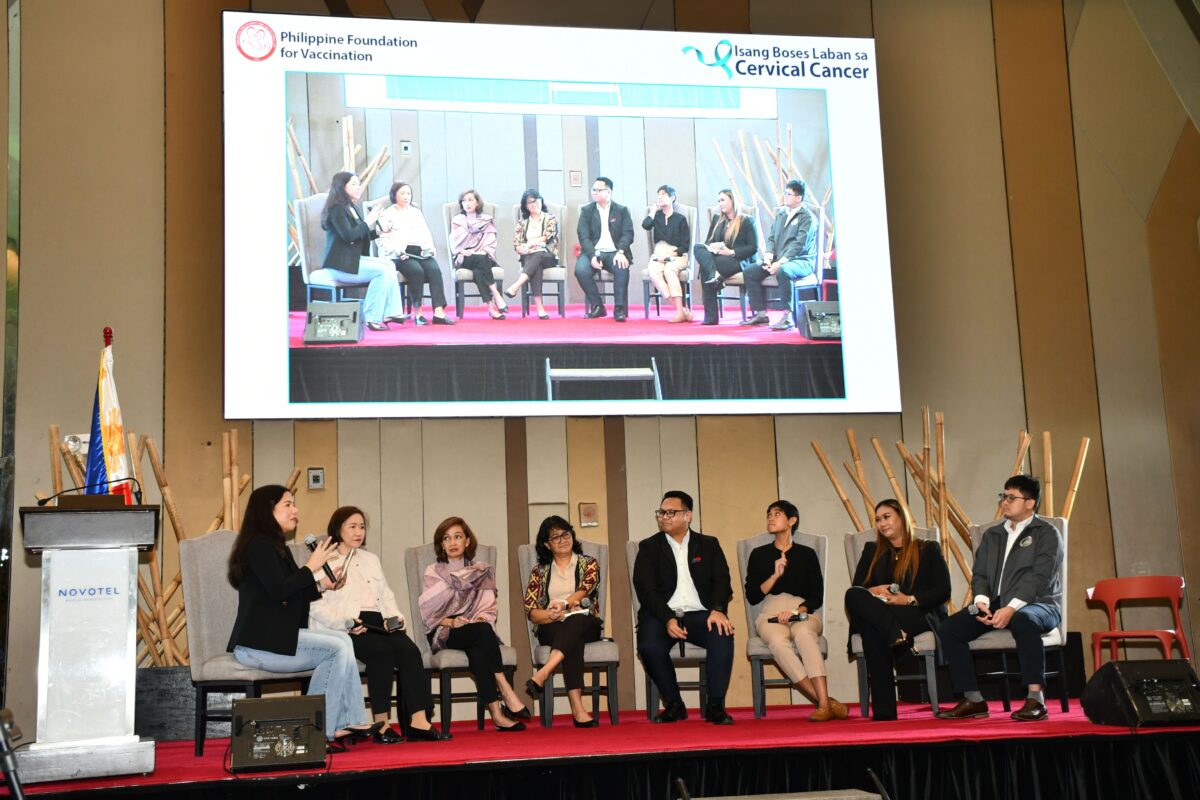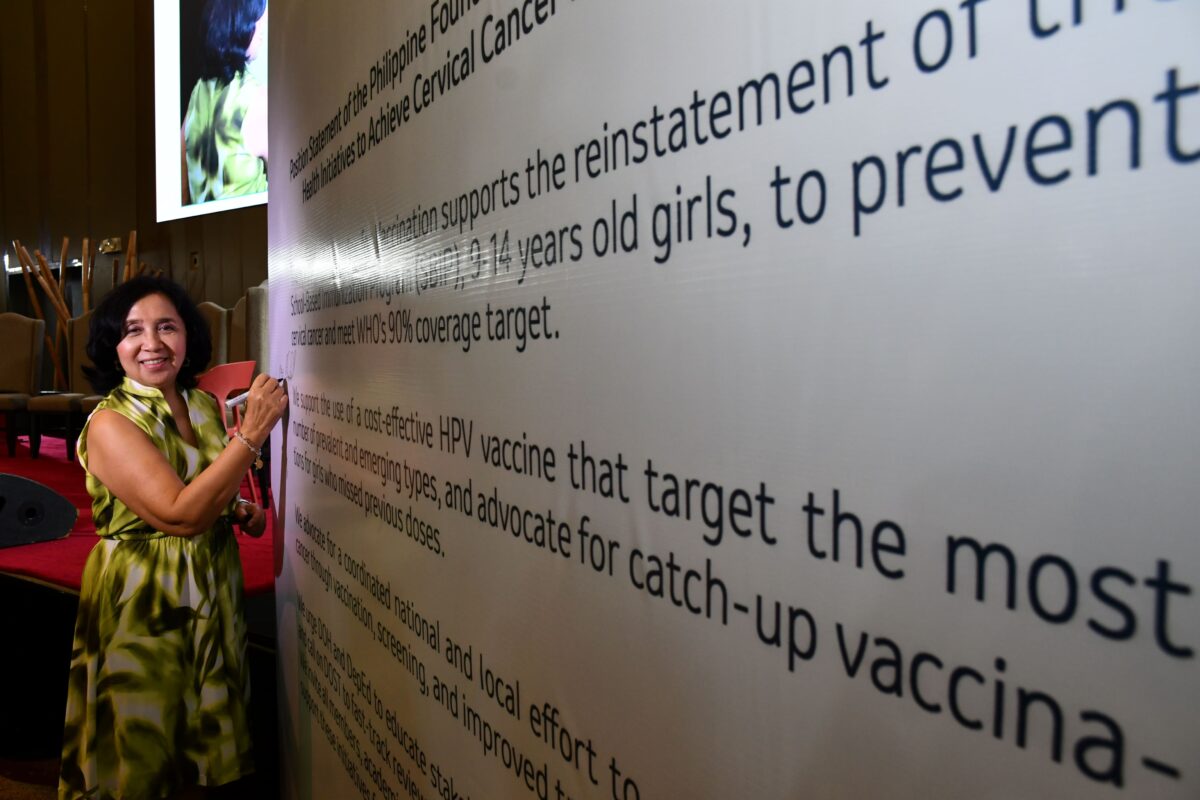Medical groups back reinstating school HPV immunization to combat cervical cancer in PH
In a concerted effort to fight cervical cancer, medical societies and health advocates are in full support of the reinstatement of the School-Based Immunization Program (SBIP) targeting girls aged 9 to 14 for HPV vaccination. This initiative is crucial, as cervical cancer remains a significant public health concern in the Philippines, claiming the lives of 12 women every day. The World Health Organization (WHO) emphasizes that cervical cancer is highly preventable through vaccination against human papillomavirus (HPV), the leading cause of this disease.

Medical Societies and representatives from the national and local government shared insights on the cervical cancer burden in the Philippines and emphasize the need for aggressive vaccination efforts to combat human papillomavirus (HPV) leading cause of cervical cancer.
In a recent media forum titled Isang Boses Laban sa Cervical Cancer, Dr. Lulu Bravo Executive Director of the Philippine Foundation for Vaccination said, “The Foundation supports the reinstatement of the School-Based Immunization Program to prevent cervical cancer and meet WHO’s 90% coverage target. We advocate for a coordinated national and local effort to prevent cervical cancer through vaccination, screening, and improved treatment access.”
The need for comprehensive education about HPV and cervical cancer is paramount. Many parents remain unaware of the critical role vaccination plays in preventing the disease. Dr. Orlaud Tantengco shared insights from the DEFEAT HPV study, “HPV viruses can be categorized into different types, much like a family tree. HPV 16 and 18 are among the more aggressive strains, classified as high-risk types because they are more likely to lead to cervical cancer. However, our study in showed that HPV 52 was the most prevalent genotype.”
Dr. Ingrid Magnata, Jhpiego Country Program Manager, emphasized “the HPV vaccine has been available since 2006, and it was introduced in the public sector around 2014.” However, experts urged the government to aim for protection against a wider array of genotypes.
“We support the use of a cost-effective HPV vaccine that targets the most number of prevalent and emerging types, and advocate for catch-up vaccinations for girls who missed previous doses,” Dr. Bravo added.
Uniting health and education
Collaboration among various sectors is vital for a successful immunization initiative. The Department of Health (DOH) and the Department of Education (DepEd) are working together to ensure that health education and vaccination efforts reach children where they are—at school. Dr. Carmina Vera, Medical Officer IV, Department of Health highlighted the importance of this partnership: “We aim to identify eligible populations to ensure equitable access for the most vulnerable groups in the country. By administering vaccines in schools, we can implement health education and collect parental consent more effectively.”

Panelists discussed the urgent need to expand access points for HPV vaccination as the country grapples with challenges in scaling up vaccine coverage.
Dr. Carmen Nievera, from the Pediatric Infectious Disease of the Philippines (PIDSP), emphasized the significance of the initiative, stating, “Investing in our children’s health today will yield substantial benefits for the future. Vaccination against HPV is not just a personal health choice; it’s a public health imperative that we must embrace collectively.”
In addition to vaccination, enhanced cervical cancer screening is critical. While the HPV vaccine provides essential protection, regular screening can identify precancerous changes early, allowing for timely intervention.
Quezon City District 1 Councilor Charm Ferrer, a cervical cancer patient herself and women’s health advocate, highlighted the importance of disease knowledge. “Anyone with a cervix can be at risk for cervical cancer, and unfortunately, we can all be carriers, regardless of gender,” Coun. Ferrer said, “We hope our advocacy leads to a national effort to eliminate cervical cancer in the Philippines.”
One community, one voice
In a collective effort to combat cervical cancer in the Philippines, various medical societies have come together to emphasize the importance of HPV vaccination. Their commitment statements reflect a shared dedication to increasing vaccination rates, enhancing screening programs, and providing accurate information about HPV and cervical cancer.

Dr. Rose Capeding, President of Philippine Foundation for Vaccination, led the commitment signing, advocating for intensified HPV vaccination as a crucial tool in the fight to eliminate cervical cancer.
Dr. Mildred Manalac-Mariano from the Philippine Medical Association (PMA) stated, “We support the promotion of the importance of vaccination against the human papillomavirus to prevent cervical cancer and decrease the cases.”
Dr. Martha Millar-Aquino of the Philippine Infectious Disease Society of Obstetrics and Gynecology (PIDSOG) pledged, “We are dedicated to implementing comprehensive strategies to tackle this disease head on. We pledge to increase the screening rates among women.”
Dr. Kristine Bajandi, Philippine Society for Microbiology and Infectious Diseases (PSMID) added, “Collaborative efforts among stakeholders are essential to ensuring access to cost-effective vaccines to protect future generations from vaccine-preventable diseases.”
Dr. Deborah Red from the Society of Adolescent Medicine of the Philippines (SAMPI) and Philippine Society of Adolescent Medicine Specialists (PSAMS) affirmed, “We commit to provide accurate information on HPV vaccination to healthcare providers, adolescents, and parents.”
Dr. Therese Mallen of the Pediatric and Adolescent Gynecology Society of the Philippines (PAGSPHIL) highlighted the need for empowerment through education, stating, “We advocate for empowerment of adolescents through early comprehensive reproductive health education and awareness about cervical cancer and HPV.”
Dr. Joan Millonado from the Philippine Ambulatory Pediatric Association (PAPA) expressed optimism about ongoing health literacy initiatives: “Through these initiatives, such as our continuing medical education activities, we are moving a few steps closer towards our goal of achieving cervical cancer elimination and promoting health across all populations.”
Finally, Dr. Margaret Alfonso also from PAPA reinforced their mission, stating, “We advocate for preventing cervical cancer through vaccination.”
The united commitment of these medical societies marks a significant step toward enhancing HPV vaccination rates and ultimately reducing cervical cancer incidence in the Philippines. The call to action is clear: community engagement, education, and a united effort to promote preventive healthcare are essential in the fight against cervical cancer. As advocates rally for the reinstatement of the SBIP and the promotion of HPV vaccination, the message remains strong—cervical cancer is preventable, and collective action is needed to safeguard the health of Filipinos.
ADVT.
This article is brought to you by Cervical Cancer Patients.
Read more stories here:
Industry Stakeholders support ESG Agriculture – PNOC’s game-changing Partnership
Vista Land Developments offer breathtaking panoramas of Silang and Tagaytay